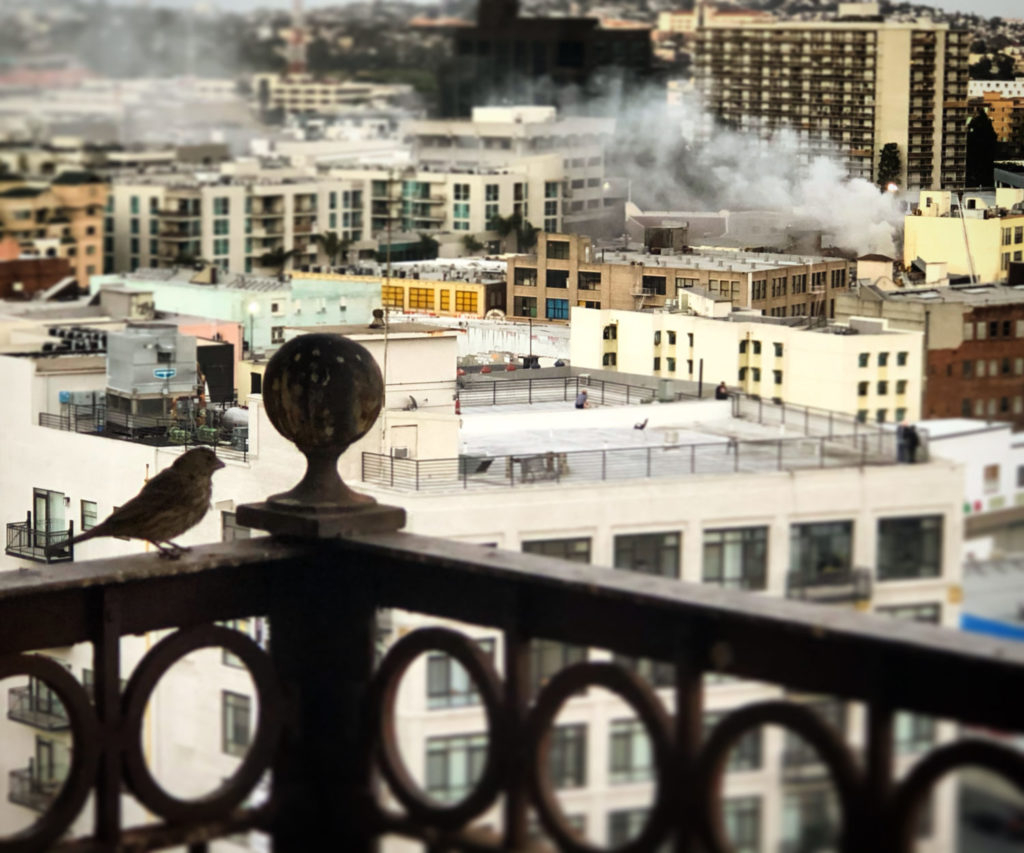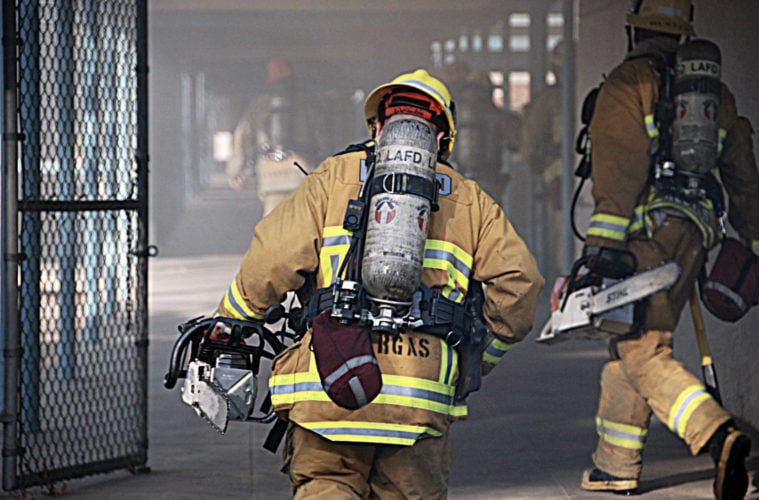People were too quick to blame the cannabis industry for the E. Boyd Street explosion that sent 11 firefighters to the hospital.
Four of the 11 remain in the hospital as of Monday night with the other seven being discharged.
The horror story started early Saturday evening at 6:26 p.m. when the Los Angeles Fire Department responded to a reported structure fire at 327 E. Boyd Street. After arriving within four minutes, the first wave of the eventual 230 firefighters that helped battle the blaze saw smoke coming from a one-story commercial structure.
After sending firefighters to the roof to vent the building, which helps clear the smoke and improve visibility for the firefighters working inside, things quickly took a turn for the worst.
“As firefighting operations continued, the firefighters encountered increased pressurized smoke and heard a rumbling high-pitched sound. Firefighters identified the changing conditions and immediately started exiting the building and the roof as the situation rapidly deteriorated,” the LAFD said in a Sunday statement.
During the explosion, all of the firefighters escaping the roof were exposed to extreme temperatures compromising their equipment as jackets burnt and helmets melted. A massive supporting cast of firefighters was called in as the injured were treated. They would beat the blaze back in a little over an hour and a half.
Quickly, the conversation turned to what kind of business was operating at the location.
On Sunday, the Associated Press called the location “a hash oil manufacturer in downtown Los Angeles that sent firefighters running for their lives.” The AP used the best info they had at the time when they wrote that since LAFD Captain Erik Scott described the scene as a BHO lab Saturday night.
By Monday, the AP had started calling the address a “vape and marijuana accessories wholesaler.” But the damage had been done.

A shot of the fire on E. Boyd Street (Shana Nys Dambrot)
One of the nation’s leading antipot voices used the moment to take a shot at legal marijuana.
“Pot industry— this is on you,” Smarter Approaches to Marijuana founder Kevin Sabet said in a retweet of a video showing the aftermath of the explosion. “Thank God the firefighters will survive, but this never should’ve happened. Our blind acceptance of legal pot has dangerous consequences.”
Sabet was informed of his mistake by me, but the tweet remains.
We asked the city’s Department of Cannabis Regulation if they had heard any word of an illegal butane hash oil lab being found at the scene?
“Although the Department has authorized certain businesses to engage in non-volatile manufacturing, currently, no cannabis businesses in the city of Los Angeles have been authorized by the Department to engage in volatile manufacturing (manufacturing that involves solvents that produce flammable gas or vapor like butane, hexane and propane),” the DCR replied.
The DCR also noted it has no commercial cannabis application or license records associated with the location where Saturday’s explosion occurred. DCR told L.A. Weekly any business manufacturing hash legally in the city would have had to have been licensed by both the DCR and the state.
California NORML struck back against the hash oil lab claims in a Monday statement, noting the explosion and fire at the “Smoke Tokes” facility in downtown Los Angeles “did not happen at a facility that contained cannabis, nor did it have any license for manufacturing or distributing cannabis products, according to a search at the CA Bureau of Cannabis Control and Department of Public Health.”
CANORML further clarified that the Smoke Tokes wholesale distribution facility sold nicotine products, paraphernalia and cans of butane, “which can be used in cigarette lighters or to illegally manufacture cannabis oils,” the statement read before concluding, “apparently, no manufacturing was being conducted at Smoke Tokes.”
The state’s oldest marijuana advocacy organization went on to point out the September 2018 law signed by Governor Newsom that made the sale of bulk quantities of butane unlawful except to licensed manufacturers. The process to get that manufacturing permit is at least $75,000 in licensing fees before all the ancillary expenses of opening a pot lab like hardware and lawyers. But people can still purchase the individual cans of butane, which in a bulk storage commercial setting may have contributed to Saturday’s blast.
“Until licensing and regulatory fees and taxes on legal cannabis businesses are brought down to reasonable levels, and those savings are passed on to the customer, illegal cannabis operations will continue, and we will pay the public safety and health consequences,” said Ellen Komp, deputy director of California NORML.
The city is conducting a major investigation of what happened with federal support from the Bureau of Alcohol, Tobacco, Firearms and Explosives.
Advertising disclosure: We may receive compensation for some of the links in our stories. Thank you for supporting LA Weekly and our advertisers.

